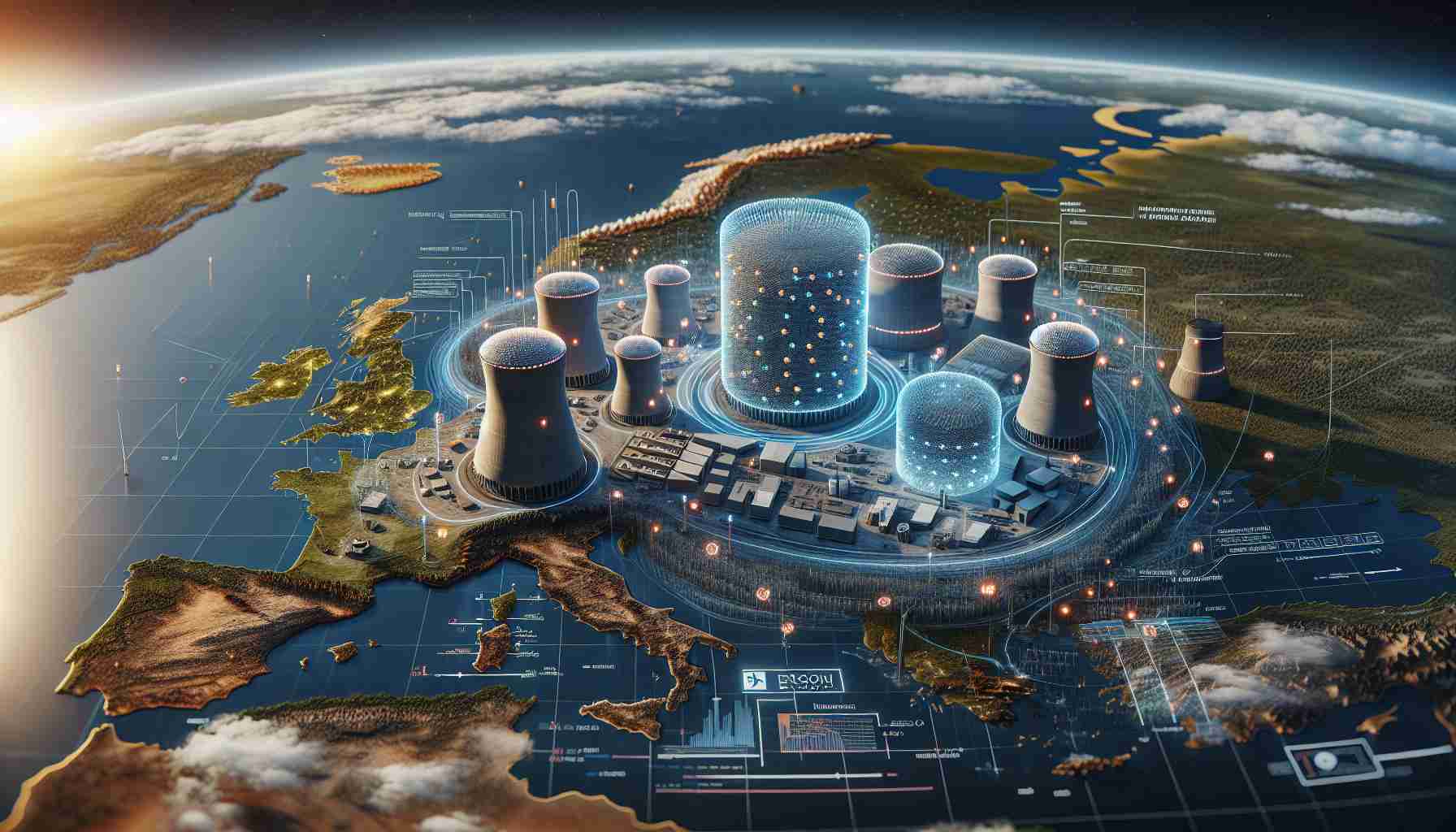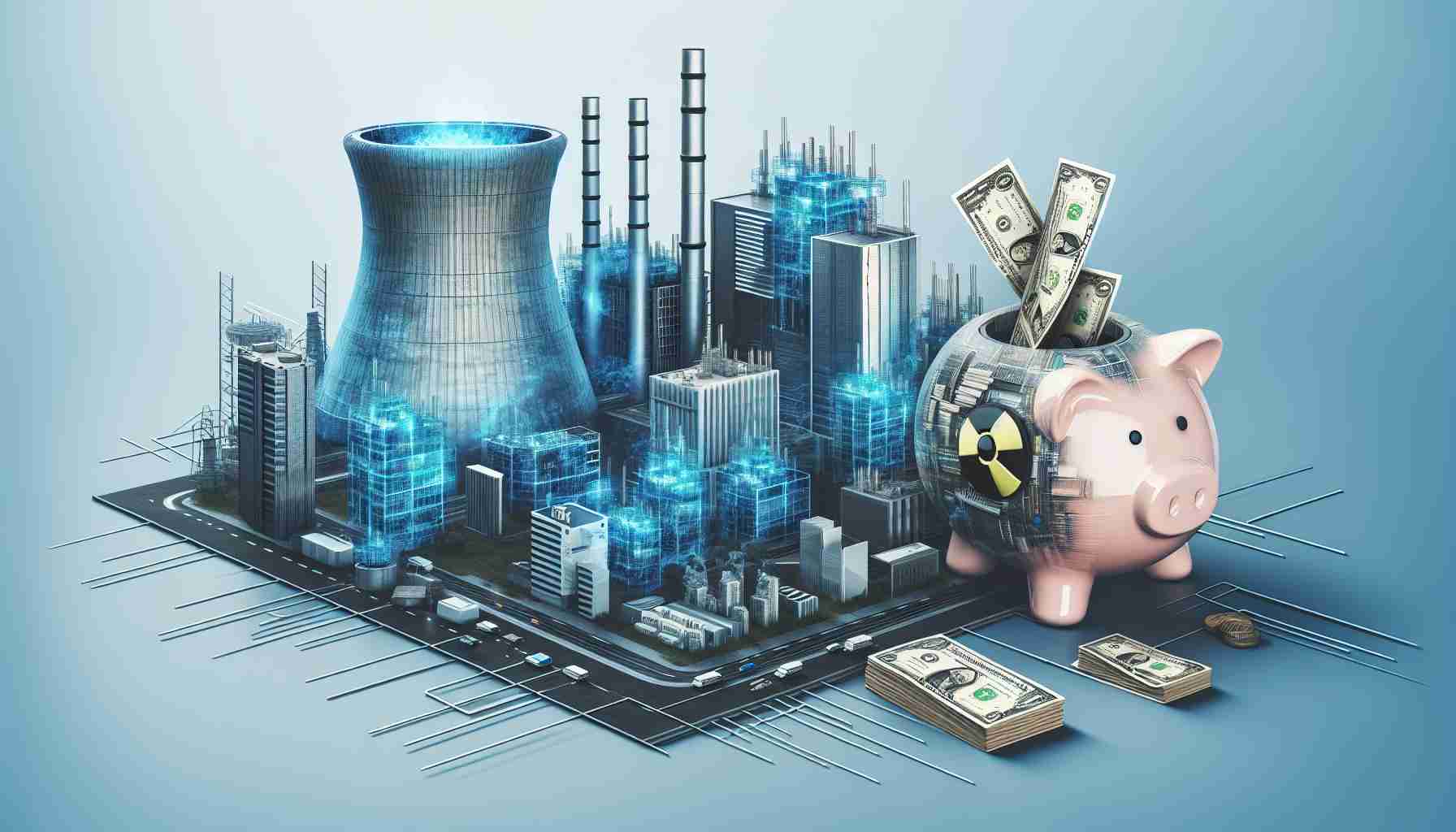The Czech Republic is poised to make bold strides into the realm of energy innovation with the adoption of Small Modular Reactors (SMRs). The advantages touted by advocates — including cost efficiency and a streamlined timeline — paint a promising picture for a nation confronting frequent energy shortages.
Government officials in Prague are optimistic, having made preliminary agreements two and a half years ago with suppliers while securing a location at the Temelin plant to host the first SMR, targeting a launch by 2030. However, the reality on the ground presents a different narrative, as the deployment of SMR technology remains largely experimental. Currently, only two commercial-sized SMR units exist globally: a floating power plant in Russia and a standalone unit in China, operational just last year.
Experts caution that the supposed benefits, such as expedited implementation and less strain on existing transmission lines, are untested on a large scale within Western markets. A local investment advisor pointed out the inherent risks involved in investing in a technology that is still in its infancy, essentially comparing it to an investable start-up whose future is highly uncertain.
Moreover, uncertainties linger regarding the regulatory landscape. With the International Atomic Energy Agency actively working to harmonize various SMR technologies and regulations, any legislative overhaul could slow the process significantly. As the EU contemplates a more favorable stance on nuclear energy, the impending requirement for a permanent waste disposal solution by 2050 looms large, adding yet another layer of complexity to the ambitious plans for SMRs.
The Hidden Perils of Small Modular Reactors: What You Need to Know
As the world seeks innovative solutions to meet rising energy demands and combat climate change, Small Modular Reactors (SMRs) have emerged as a focal point of discussions in various countries, including the Czech Republic. While the initial outlook is optimistic, the challenges and controversies surrounding this technology are significant and merit closer examination.
Environmental Concerns and Safety Issues
One of the biggest controversies surrounding SMRs is the environmental impact they may pose. Advocates argue that SMRs produce low carbon emissions, a crucial factor in the fight against climate change. However, critics raise concerns about potential accidents and the radioactive waste that remains a byproduct of nuclear power. Unlike traditional reactors, SMRs are designed to be safer and more efficient, but they are not immune to environmental risks. The potential for accidents—though statistically low—could have devastating consequences for local ecosystems and communities.
The Financial Burden on Communities
While SMRs are promoted as cost-effective solutions, the reality may differ for local communities. Construction and maintenance of nuclear power facilities often require substantial investment, coupled with long-term financial commitments. If projects fail to meet their deadlines or exceed their budgets—both common scenarios in large-scale energy projects—local taxpayers may bear the financial burden. Furthermore, the transition to nuclear energy could lead to job losses in traditional energy sectors, affecting local employment rates and economic stability.
Public Perception and Acceptance
Public opinion towards nuclear energy remains divided. In countries with a history of nuclear accidents, such as the Czech Republic, there is heightened skepticism. While government officials promote SMRs as a modern solution to energy shortages, some citizens are concerned about safety, waste disposal, and environmental impacts. Engaging with communities to foster understanding and trust will be imperative for the success of SMRs but is often overlooked in project planning stages.
Questions about Technology Scalability
Can SMR technology scale effectively in various environments? The unique designs of SMRs are meant to provide flexibility and modularity, making them suitable for a range of applications. However, large-scale deployment in differing geographical and regulatory contexts poses a substantial challenge. Furthermore, since technology is still emerging, there is no guarantee that SMRs will deliver the promised benefits at a larger scale.
The International Regulatory Landscape
Navigating the complex international regulatory environment adds another layer of difficulty. The concerted efforts by the International Atomic Energy Agency (IAEA) to establish harmonized regulations for SMRs are still in their infancy. Divergent regulatory frameworks in different countries could lead to discrepancies in safety standards, creating confusion and potential safety risks that could affect how communities and countries adopt SMR technology.
Future of Energy and Nuclear Dependency
As the EU moves toward a more favorable stance on nuclear energy, the debate over dependency on nuclear power continues. Countries like the Czech Republic must consider the implications of relying heavily on a single energy source. What happens if there are technological setbacks with SMRs, or if public opposition grows? Diversifying energy sources is seen as crucial for security; however, the enthusiasm for SMRs could divert attention from other renewable energy potentials like solar and wind.
Conclusion: A Double-Edged Sword
The journey towards integrating Small Modular Reactors into the Czech Republic’s energy landscape is fraught with challenges and uncertainties. It is essential for governments and communities to weigh both the potential benefits and the significant risks involved. Understanding the balance between innovation and safety, environmental impact, and public acceptance will dictate the future of SMR technologies and their role in a sustainable energy mix.
For more insights on energy innovations and their impact, visit World Nuclear Association.
The source of the article is from the blog anexartiti.gr



